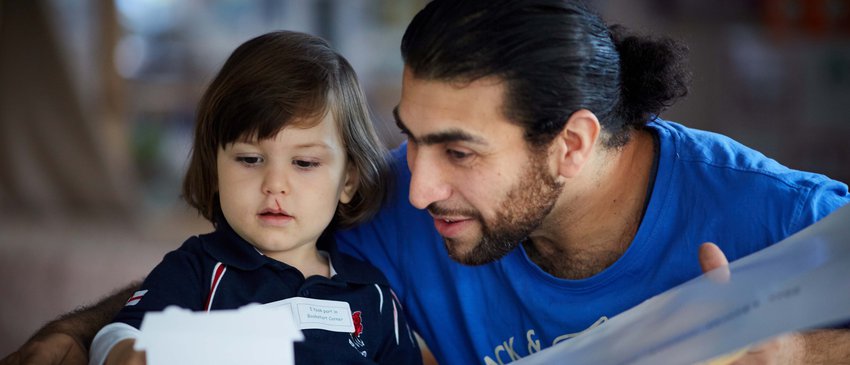COVID-19 and literacy: Early years and the home learning environment

Learning loss in the early years
The most disadvantaged children are 19 months behind their more well-off peers in language and communication development by the time they start primary school.
We know that what happens at home in the early years of a child’s life is not only the key to their success in education, but also to their success in life.
90% of families reported an increase in enriching activities, such as chatting, playing and reading, during lockdown. However, disadvantaged parents were less likely to engage in enriching activities (Oxford Brookes University 2020), and parents who have experienced financial difficulties are more likely to say they have spent less quality time with their child (Ipsos Mori 2020).
Key findings
-
Home learning environment
43% of family members have seen improved relationships with their children (Family Action 2021).
-
Parents' mental health
65% of parents with young children at home were feeling stressed, worried or overwhelmed during the spring 2020 lockdown (Pascal et al 2020), while 33% of parents felt out of their depth (Action for Children 2020).
-
Parent wellbeing and income
A survey of low-income families found that around three-quarters of people were finding it ‘difficult’ or ‘very difficult’ to manage financially (Edwards et al 2020).
-
School readiness
76% of schools reported that children who started Reception needed more support than children in previous cohorts (Bowyer-Crane et al 2021)
Our work
We are working across our early years and home learning environment programmes to combat the impact of COVID-19.
-
This programme supports babies and toddlers who may need early help with speech, language and communication before the age of two.Learn more about First Words Together.
-
Our parent-facing site Words for Life provides milestones, tips, fun resources and advice to help parents support their children’s literacy development.Learn more about Parents and families.

